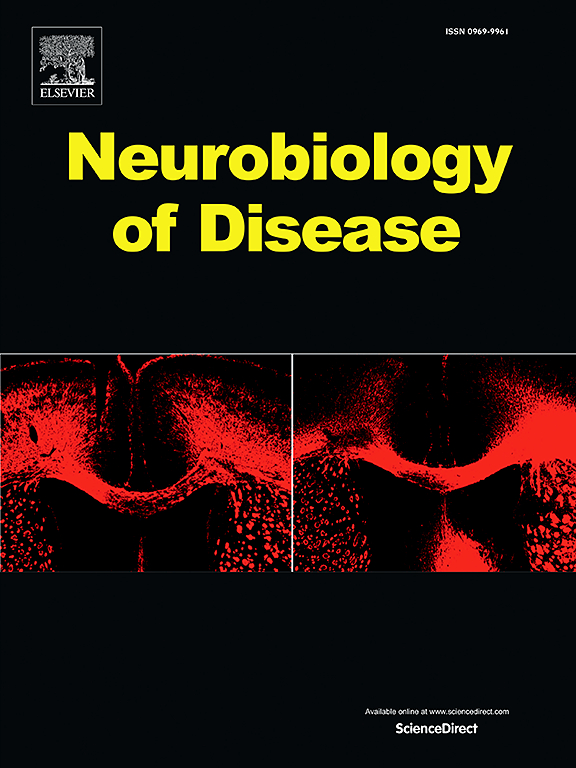Gene co-expression patterns shared between chemobrain and neurodegenerative disease models in rodents
IF 5.6
2区 医学
Q1 NEUROSCIENCES
引用次数: 0
Abstract
Chemotherapy-related cognitive impairment (CRCI), is a well-recognized phenomenon in cancer patients who have undergone chemotherapy but the exact molecular mechanisms underpinning CRCI remain elusive. Symptoms reported by people with CRCI resemble those experienced by people with age-related neurodegenerative disorders (ARNDDs), yet no clear connection between CRCI and ARNDDs has been reported to date. The existence of shared mechanisms between these conditions offers opportunities for repurposing drugs already approved for the treatment of ARNDDs to improve symptoms of CRCI. Given that there is no available microarray or RNA-Seq data from the brains of people who have experienced CRCI, we investigated to what extent brain gene expression perturbations from validated rodent models of CRCI induced by chemotherapy compared with validated rodent models of Alzheimer’s disease and Parkinson’s disease. We utilized multiple bioinformatic analyses, including functional enrichment, protein-protein interaction network analyses, gene ontology analyses and identification of hub genes to reveal connections between comparable gene expression perturbations observed in these conditions. Collectively 165 genes overlapped between CRCI and Parkinson’s disease and/or Alzheimer’s disease, and 15 overlapped between all three conditions. The joint genes between Alzheimer’s disease, Parkinson’s disease and CRCI demonstrate an average of 83.65% nucleotide sequence similarity to human orthologues. Gene ontology and pathway enrichment analyses suggest mechanisms involved in neural activity and inflammatory response as the key components of the studied neuropathological conditions. Accordingly, genes in which expression was comparably affected in all three condition models could be attributed to neuroinflammation, cell cycle arrest, and changes in physiological neural activity.
啮齿类动物化学脑和神经退行性疾病模型之间基因共表达模式的共享
化疗相关认知障碍(CRCI)是癌症患者接受化疗后普遍存在的现象,但CRCI的确切分子机制尚不清楚。CRCI患者报告的症状与年龄相关性神经退行性疾病(arndd)患者的症状相似,但迄今为止尚无CRCI与arndd之间的明确联系的报道。这些疾病之间存在共同的机制,这为重新利用已经批准用于治疗arndd的药物来改善CRCI症状提供了机会。鉴于没有来自CRCI患者大脑的可用微阵列或RNA-Seq数据,我们研究了与阿尔茨海默病和帕金森病的验证啮齿动物模型相比,化疗诱导的CRCI验证啮齿动物模型的大脑基因表达扰动在多大程度上。我们利用多种生物信息学分析,包括功能富集、蛋白质相互作用网络分析、基因本体分析和中心基因鉴定,揭示在这些条件下观察到的可比基因表达扰动之间的联系。CRCI与帕金森病和/或阿尔茨海默病之间共有165个基因重叠,在所有三种疾病之间共有15个基因重叠。阿尔茨海默病、帕金森病和CRCI之间的联合基因与人类同源物的核苷酸序列平均相似度为83.65%。基因本体和途径富集分析表明,神经活动和炎症反应的机制是所研究的神经病理条件的关键组成部分。因此,在所有三种情况模型中表达受到比较影响的基因可归因于神经炎症、细胞周期阻滞和生理神经活动的变化。
本文章由计算机程序翻译,如有差异,请以英文原文为准。
求助全文
约1分钟内获得全文
求助全文
来源期刊

Neurobiology of Disease
医学-神经科学
CiteScore
11.20
自引率
3.30%
发文量
270
审稿时长
76 days
期刊介绍:
Neurobiology of Disease is a major international journal at the interface between basic and clinical neuroscience. The journal provides a forum for the publication of top quality research papers on: molecular and cellular definitions of disease mechanisms, the neural systems and underpinning behavioral disorders, the genetics of inherited neurological and psychiatric diseases, nervous system aging, and findings relevant to the development of new therapies.
 求助内容:
求助内容: 应助结果提醒方式:
应助结果提醒方式:


